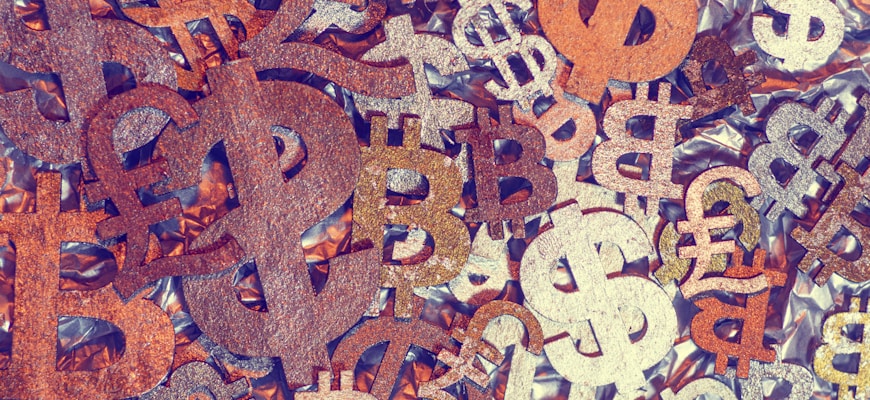The Role of Blockchain in Building the Metaverse Economy

- Understanding the basics of blockchain technology
- Exploring the concept of the metaverse and its potential impact
- How blockchain is revolutionizing digital ownership in the metaverse
- The role of decentralized finance (DeFi) in the metaverse economy
- Challenges and opportunities of integrating blockchain in the metaverse
- Future prospects for blockchain technology in shaping the metaverse economy
Understanding the basics of blockchain technology
Blockchain technology is a decentralized, distributed ledger system that securely records transactions across a network of computers. This technology allows for the creation of a transparent and tamper-proof record of transactions, making it an ideal solution for building trust in digital environments. In the context of the metaverse economy, blockchain can play a crucial role in enabling secure and efficient transactions between users, as well as facilitating the exchange of digital assets.
One of the key features of blockchain technology is its ability to create smart contracts, which are self-executing contracts with the terms of the agreement between buyer and seller directly written into lines of code. This eliminates the need for intermediaries and reduces the risk of fraud, making transactions more secure and efficient. By leveraging smart contracts, the metaverse economy can automate various processes such as asset transfers, payments, and royalties, streamlining operations and reducing costs.
Moreover, blockchain technology enables the tokenization of assets, which involves representing real-world assets as digital tokens on a blockchain. These tokens can then be traded, exchanged, or used as collateral in various transactions within the metaverse economy. By tokenizing assets, users can fractionalize ownership, increase liquidity, and unlock new opportunities for value creation. This can lead to a more inclusive and accessible economy where users can participate in a wide range of activities and transactions.
Overall, understanding the basics of blockchain technology is essential for harnessing its full potential in building the metaverse economy. By leveraging the transparency, security, and efficiency offered by blockchain, businesses and users can create a vibrant and sustainable digital ecosystem where trust is paramount. As the metaverse continues to evolve, blockchain will play a pivotal role in shaping the future of digital interactions and transactions, paving the way for a more connected and decentralized economy.
Exploring the concept of the metaverse and its potential impact
The concept of the metaverse has been gaining traction in recent years, sparking discussions about its potential impact on various aspects of our lives. The metaverse, essentially a collective virtual shared space, is envisioned as a fully immersive digital environment where users can interact with each other and digital objects in real-time.
This virtual universe is not limited to just one platform or world but is a network of interconnected virtual spaces that are created and maintained by its users. The metaverse has the potential to revolutionize the way we work, socialize, and entertain ourselves, offering new possibilities for collaboration, creativity, and exploration.
One of the key technologies that could play a crucial role in shaping the metaverse is blockchain. Blockchain, a decentralized and secure digital ledger, can provide the infrastructure needed to support the vast virtual economies that will emerge within the metaverse. By using blockchain technology, users can securely own, trade, and monetize digital assets within this virtual space.
Furthermore, blockchain can also enable secure and transparent transactions, facilitate digital identity verification, and ensure data privacy within the metaverse. As the metaverse continues to evolve and expand, blockchain technology will be essential in creating a trusted and efficient ecosystem for users to engage with each other and with digital content.
In conclusion, the metaverse represents a new frontier in the digital landscape, offering endless possibilities for innovation and growth. With the integration of blockchain technology, the metaverse economy can thrive, providing users with a secure and decentralized platform to explore, create, and interact like never before. The future of the metaverse is bright, and blockchain will undoubtedly play a crucial role in shaping this exciting virtual world.
How blockchain is revolutionizing digital ownership in the metaverse
Blockchain technology is playing a crucial role in transforming digital ownership within the metaverse. By leveraging blockchain, users can securely buy, sell, and trade digital assets with full ownership rights. This decentralized ledger ensures transparency and immutability, reducing the risk of fraud or manipulation.
One of the key advantages of blockchain in the metaverse is the concept of non-fungible tokens (NFTs). NFTs are unique digital assets that are indivisible and cannot be replicated, making them ideal for representing ownership of virtual properties, artwork, and other digital collectibles. These NFTs are stored on the blockchain, providing a secure and tamper-proof record of ownership.
Moreover, blockchain technology enables smart contracts, self-executing contracts with the terms of the agreement directly written into code. In the metaverse, smart contracts can automate transactions, enforce property rights, and ensure that ownership transfers are executed seamlessly and securely. This eliminates the need for intermediaries, reducing costs and increasing efficiency.
The role of decentralized finance (DeFi) in the metaverse economy
Decentralized finance (DeFi) plays a crucial role in the emerging metaverse economy, offering a new way to manage financial transactions without the need for traditional intermediaries. By leveraging blockchain technology, DeFi platforms enable users to access a wide range of financial services, including lending, borrowing, trading, and investing, all within a decentralized and transparent ecosystem.
One of the key advantages of DeFi in the metaverse economy is its ability to provide greater accessibility and inclusivity to individuals who may not have access to traditional banking services. This opens up new opportunities for people to participate in the digital economy, regardless of their location or socioeconomic status. Additionally, DeFi protocols operate autonomously through smart contracts, reducing the risk of human error or manipulation.
Moreover, DeFi in the metaverse economy offers increased security and privacy for users, as transactions are recorded on the blockchain and cannot be altered once they are confirmed. This provides a high level of transparency and trust, which is essential for building a sustainable and thriving digital economy. Furthermore, DeFi platforms in the metaverse economy can facilitate seamless cross-border transactions, eliminating the need for costly and time-consuming intermediaries.
Overall, the integration of decentralized finance into the metaverse economy has the potential to revolutionize the way we interact and transact in virtual worlds. By harnessing the power of blockchain technology, DeFi platforms can enable a more efficient, secure, and inclusive financial system that empowers individuals to take control of their digital assets and participate in the growing digital economy.
Challenges and opportunities of integrating blockchain in the metaverse
Integrating blockchain technology in the metaverse presents both challenges and opportunities for the emerging digital economy. While blockchain offers a decentralized and secure platform for transactions and data storage, its integration into the metaverse poses technical, regulatory, and scalability challenges.
One of the key challenges of integrating blockchain in the metaverse is the scalability issue. The current blockchain networks may not be able to handle the volume of transactions and data processing required in a fully immersive metaverse environment. This could lead to slow transaction speeds and high fees, hindering the seamless user experience.
Moreover, regulatory challenges such as compliance with data privacy laws and anti-money laundering regulations could pose obstacles to the widespread adoption of blockchain in the metaverse. Ensuring user privacy and security while maintaining regulatory compliance will be crucial for the success of blockchain integration in the metaverse.
On the other hand, integrating blockchain in the metaverse presents numerous opportunities for innovation and growth. Smart contracts powered by blockchain technology can enable automated and trustless transactions within the metaverse, creating new economic opportunities for users and developers.
Blockchain integration can also enhance the security and transparency of digital assets in the metaverse, reducing the risk of fraud and counterfeiting. By leveraging blockchain technology, virtual assets in the metaverse can be securely stored, verified, and transferred, fostering trust among users and promoting economic activity.
In conclusion, while the challenges of integrating blockchain in the metaverse are significant, the opportunities for innovation and growth are equally compelling. By addressing technical, regulatory, and scalability challenges, the integration of blockchain technology in the metaverse can unlock new possibilities for the digital economy and redefine the way we interact in virtual worlds.
Future prospects for blockchain technology in shaping the metaverse economy
Blockchain technology has the potential to revolutionize the metaverse economy in the near future. As more virtual worlds and digital assets are created within the metaverse, blockchain can provide a secure and transparent framework for managing transactions and ensuring authenticity. By using decentralized ledgers, blockchain can enable users to buy, sell, and trade virtual goods without the need for intermediaries. This will not only streamline the process but also reduce costs and increase efficiency.
Furthermore, blockchain can help establish trust and credibility in the metaverse by enabling verifiable ownership of digital assets through smart contracts. This will prevent fraud and ensure that users have full control over their virtual possessions. Additionally, blockchain technology can facilitate cross-platform compatibility, allowing users to seamlessly transfer assets between different virtual worlds and ecosystems.
Another important aspect of blockchain technology in shaping the metaverse economy is the ability to create unique and scarce digital assets through non-fungible tokens (NFTs). These tokens represent ownership of a specific item or piece of content, making them highly valuable and sought after in the virtual world. NFTs can be used to tokenize virtual real estate, art, collectibles, and more, providing new opportunities for creators and investors alike.



